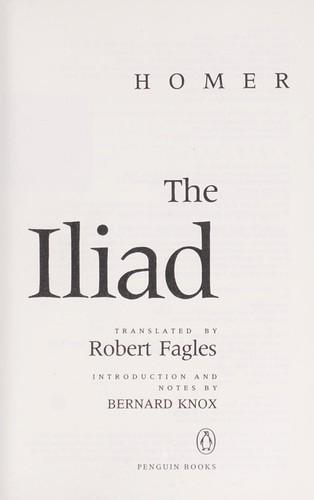nicknicknicknick@bookwyrm.social reviewed Iliad by Homer
The Iliad
4 stars
1) '''Take me alive, son of Atreus, and accept A worthy ransom from the treasure stored In my father's palace, bronze, gold, wrought iron. My father would lavish it all on you if he heard I was still alive among the Achaean ships.'
The speech had its intended effect. Menelaus was about to hand him over To be led back to the ships, but Agamemnon Came running over to call him on it:
'Going soft, Menelaus? What does this man Mean to you? Have the Trojans ever shown you Any hospitality? Not one of them Escapes sheer death at our hands, not even The boy who is still in his mother's womb. Every Trojan dies, unmourned and unmarked.'''
2) ''His shout split the air: 'Move, Trojans! Let's tear down this Greek fence And make a bonfire out of their ships!'
They heard him, all right, and …
1) '''Take me alive, son of Atreus, and accept A worthy ransom from the treasure stored In my father's palace, bronze, gold, wrought iron. My father would lavish it all on you if he heard I was still alive among the Achaean ships.'
The speech had its intended effect. Menelaus was about to hand him over To be led back to the ships, but Agamemnon Came running over to call him on it:
'Going soft, Menelaus? What does this man Mean to you? Have the Trojans ever shown you Any hospitality? Not one of them Escapes sheer death at our hands, not even The boy who is still in his mother's womb. Every Trojan dies, unmourned and unmarked.'''
2) ''His shout split the air: 'Move, Trojans! Let's tear down this Greek fence And make a bonfire out of their ships!'
They heard him, all right, and swarmed Right up the wall, climbing to its pickets With spears in their hands, while Hector Scooped up a stone that lay by the gates, A massive boulder tapering to a point. It would take two men to heave it onto a cart#- More than two as men are now#-but Hector Handled it easily alone. Zeus Lightened it for him, so that the stone Was no more to Hector than the fleece Of a ram is to a shepherd who carries it Easily in his free hand. This was how Hector carried it up to the gates, A set of heavy double doors, solidly built And bolted shut by interlocked inner bars. Standing close to these towering doors, Hector Spread his feet to get his weight behind the throw And smashed the stone right into the middle. The hinges broke off, and the stone's momentum Carried it through, exploding the doors And sending splintered wood in every direction. Hector jumped through, a spear in each hand.
His face was like sudden night, And a dark gold light played about the armor That encased his zealous bones. No one Could have stopped him, except the gods, In his immortal leap through the ruined gate, And his eyes glowed with fire. Wheeling around In the throng, Hector called to his Trojans, Who needed no persuasion, to scale the wall. Those who couldn't swarmed through the gate. And the Greeks? In rout to their hollow ships, With a noise like the damned stampeded into hell.''



